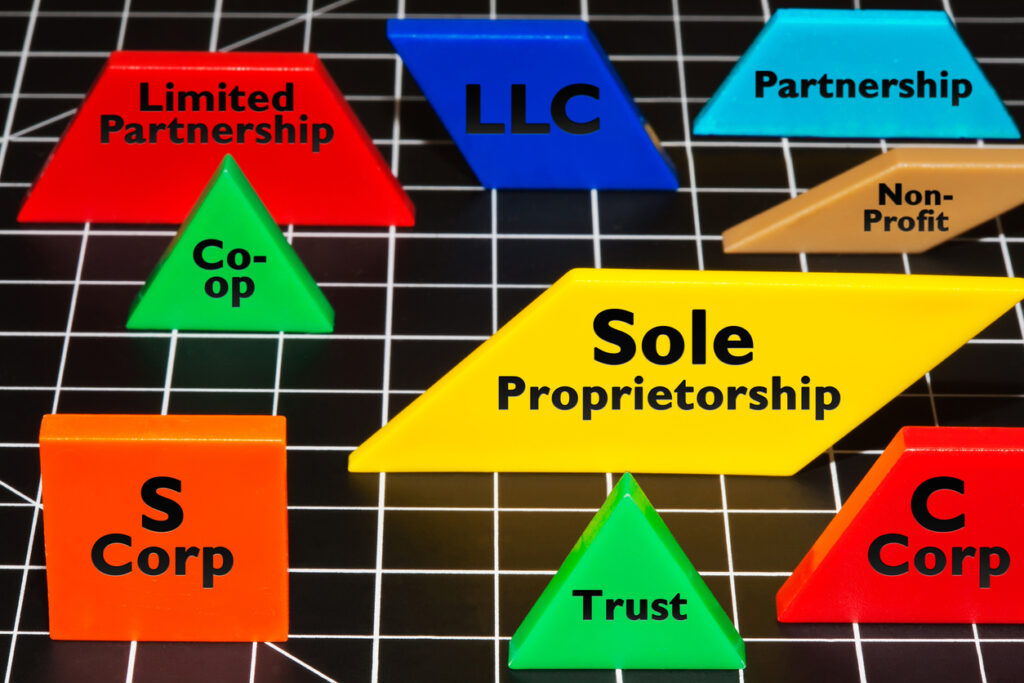How to Register Your Small Business in Colorado
Not all small businesses need to register in Colorado, but for certain types of businesses, registration is a necessary part of business formation. Even if Colorado business registration is not required, it can provide your business with benefits, and due to its relatively low cost it is well worth it.
However, if you want to set up a business structure that will protect your personal assets from business liabilities, will define the role of partners and investors, or will create a favorable tax position, then you need to register. Depending on the specifics of your business, registration can be complicated, so here are some of the steps you need to take. These can be complicated and confusing, and a small business lawyer can help you navigate them properly.

Decide on a Legal Structure
The legal structure of your business defines whether you need to register or not. Sole proprietorships and general partnerships do not need to register. However, registering a trade name is strongly recommended for a sole proprietor, especially if you are going to operate under any name other than your own, and it costs just $20.00 per year.
You will need to register if you want your business to be a:
- Partnership
- Limited liability corporation
- Profit corporation
- Nonprofit corporation
We’ll discuss the different business types and their benefits below.
Partnerships
Partnerships are used when two or more people go into business together. The partnership agreements define how the people will share responsibilities and profits. There are two main types of partnerships that get registered: limited partnerships and limited liability partnerships.
Limited partnerships set up one or more general partners who have unlimited liability for the partnership, and, usually, full control over the business. Other partners have limited control and liability. Limited liability partnerships limit the liability of all partners, but don’t necessarily give some partners more control than others. The two can be blended into a limited liability limited partnership.
Limited Liability Corporation
A limited liability corporation separates business assets from personal assets. This protects you from losing your personal assets if the Colorado business LLC gets sued or goes bankrupt (with some exceptions – so always make sure to speak with an attorney to make sure you are operating correctly). The LLC doesn’t pay corporate taxes, but all LLC members who share profits are considered self-employed and pay taxes accordingly.
Profit Corporation
A profit corporation is a separate entity from its owners. It may pay separate taxes and will have fully separate liability (again, as long as you are operating it correctly). However, these corporations require good recordkeeping and governance documents.
Provided they follow specific rules and regulations, corporations can sell stock to raise funding.
Nonprofit Corporation
Nonprofit corporations perform work for public benefit rather than private profit. These corporations are granted tax-exempt status, but they have more stringent rules around fundraising and revenue.

Decide on a Unique Name
Every business that registers with the state of Colorado needs a unique name. Fortunately, the Secretary of State maintains a Colorado business registry database of all the names so that you can find out whether your name is uniquely distinguishable from other business, which you will find here. However, just because it looks unique or the Secretary of State’s site allows you to register it doesn’t mean it is unique enough to use, so always consult an attorney to make sure your name doesn’t infringe on another company’s name.
A unique name has:
- Unique spelling
- Unique spacing
- Unique punctuation
Unique spelling can include spelling out what is abbreviated in another name. “Boops CO” is different from “Boops Corp,” and both are different from “Boops Corporation.” You can also use articles like “the” or “a” to distinguish your name. Unique spacing means having spaces between your letters. For example, “B o o p s CO” is different from “Boops CO.” Unique punctuation means adding some punctuation marks. For example, “(B)Oops CO” is different from “Boops CO.”
However, some things don’t make names distinguishable, such as:
- Periods or commas
- Underscores
- Apostrophes and inverted apostrophes
- Capital letters
This means that “B.O.O.P.S. CO” is the same as “BOOPS CO” and “Boops CO.” Nor are they distinguishable from “B_O_O_P_S CO” or “Boop’s CO.”
If you can’t find a unique business name that you like for your business, you can get a trade name, also known as a “doing business as” or DBA name that doesn’t have to be unique. This can be the name that you use on your storefront and advertising. You just need to make sure all your official paperwork includes your unique name.
It’s also important to know that your official name might have elements that must be included based on the structure. For example, a corporation must include something like “corporation,” “incorporated,” or other terms to show it is a corporation.
File Necessary Documents
Once you’ve decided on your business structure and your name, it’s time to file the official paperwork. The website of the Secretary of State will walk you through the process. However, before you start, you should get the checklist for your specific type of business. For example, here are checklists for a limited liability corporation and a profit corporation.
If you’re not sure about anything in the checklist, it is recommended that you talk to a small business attorney to make sure you are getting it right. Making mistakes on your paperwork could delay your opening or lead to financial or legal penalties.
Get Legal Help to Establish Your Business Properly
If you are looking for help getting your business started in the right way, a small business lawyer can help. Elizabeth Lewis is a lawyer focused on the needs of small businesses, including those that are just starting out. Since 2010, she has been helping small businesses overcome the challenges of formation. This includes more than just getting your business registered. It also can mean reviewing contracts for employees, suppliers, customers, and more. Elizabeth is also very familiar with intellectual property law and can help you protect your valuable ideas from competitors, partners, and others. She can help you find and negotiate good deals on commercial real estate, too.
Elizabeth takes a results-oriented approach to working with her clients. She wants to do what is necessary to help your business thrive, and she’s had great success in the past. When you work with Elizabeth, you can count on receiving the highly personalized service your business needs to navigate the complex legal challenges that may arise over time.
To learn how Elizabeth can help you get your business registered in Colorado, please contact the Law Office of E. C. Lewis today. We serve clients in Denver and throughout Colorado.

